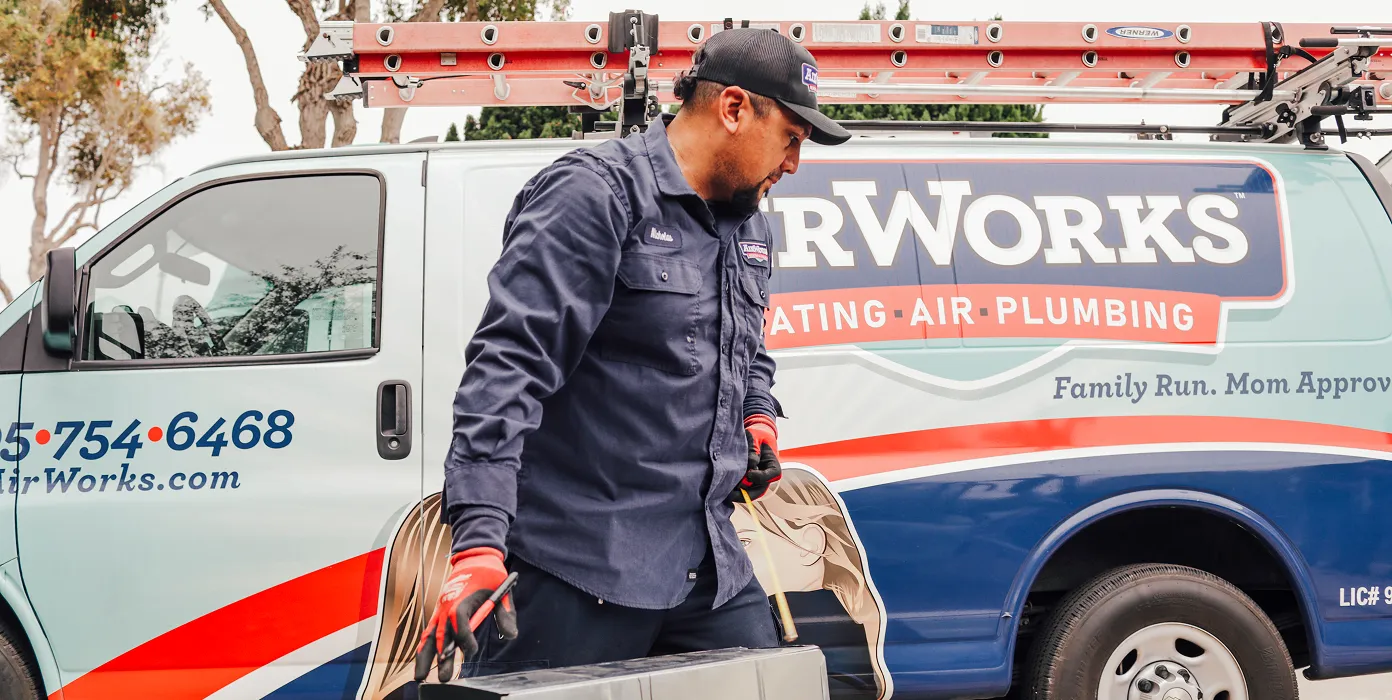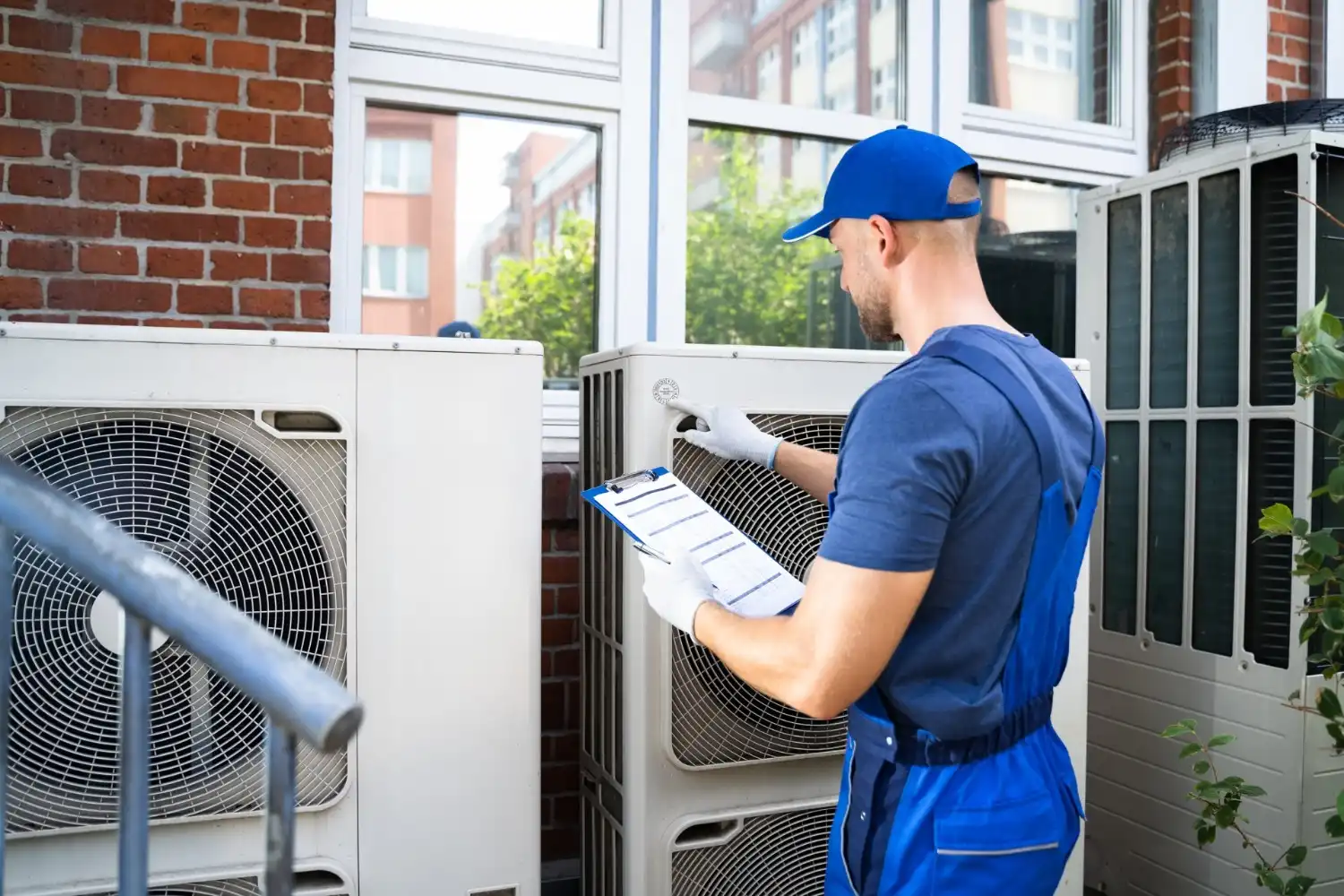Commercial AC Installation El Rio, CA
Serving Ventura & Sacramento Counties

Commercial AC Installation El Rio, CA
A properly planned commercial AC installation in El Rio, CA keeps employees, customers, and equipment comfortable and productive year-round. El Rio businesses face warm Mediterranean summers, occasional marine humidity, and rising energy-code requirements — all reasons a commercial-grade cooling system must be sized, specified, and installed with precision. This page explains how a professional commercial AC installation addresses common commercial cooling needs in El Rio, what to expect during design and installation, and why careful commissioning and compliance matter to long-term performance.
Common commercial AC needs in El Rio
Commercial properties in El Rio include small warehouses, retail spaces, offices, restaurants, and multi-tenant buildings. Typical installation goals include:
- Consistent temperature and humidity control for occupant comfort
- Zoning to serve multiple tenants or distinct work areas
- Efficient rooftop or packaged systems to save indoor floor space
- Integration with building controls and energy-management strategies
- Minimized downtime during replacement or retrofit projects
Common commercial AC installation issues in El Rio
- Undersized systems that struggle on hot inland days or when humidity rises
- Poor zoning that creates hot and cold spots across open-floor plans
- Inadequate ventilation or filtration impacting indoor air quality
- Systems that don’t meet California energy codes (including Title 24) or local permitting requirements
- Disruption to business operations because of poorly planned installation logistics

Needs assessment: tailoring the system to your space
A successful commercial AC installation begins with a detailed needs assessment specific to El Rio businesses. This includes:
- Review of building use, occupancy schedules, and process loads (equipment, server rooms, kitchens)
- Building envelope survey: roof type, insulation, glazing, and sun exposure that affect cooling load
- Existing HVAC infrastructure evaluation: duct condition, rooftop support, electrical service capacity
- Indoor air quality requirements and ventilation needs based on occupancy and local climate
Assessment results guide the system type, capacity, and control strategy so your new installation serves both comfort and operational needs.
Custom system design and equipment selection
Commercial projects require design choices that balance performance, cost, and maintainability. Options commonly considered for El Rio properties:
- Rooftop packaged units (RTUs) — compact, serviceable, and ideal for many retail and light industrial buildings
- Split and packaged systems with dedicated outdoor compressors for larger installations
- Variable refrigerant flow (VRF) systems for multi-zone control and high efficiency in tenant spaces
- Chillers and air handlers for larger complexes or buildings using central plant systems
- Economizers and energy recovery ventilators (ERVs) to reduce cooling loads and manage humidity
Equipment selection follows industry-standard load calculations and ASHRAE guidance, with attention to local energy codes and incentives. Selection criteria include capacity, efficiency (SEER/EER/IEER where applicable), refrigerant type, noise limits, and maintainability for El Rio’s climate.
Installation logistics for businesses
Commercial installations need tight coordination to protect business continuity. Typical logistics considerations:
- Phased work schedules or after-hours installation to minimize operational disruption
- Rooftop equipment staging and rigging plans, including crane or hoisting permitting when required
- Temporary cooling solutions for tenant protection during downtime
- Coordination with electrical contractors for service upgrades and metering
- Dust, debris, and safety plans for occupied spaces
A clear installation plan outlines milestones, responsibility for inspections, and contingency steps so businesses can operate with minimal interruption.
Compliance with commercial codes and permits
Commercial installs in El Rio must comply with California building and mechanical codes, local Ventura County permitting, and Title 24 energy-efficiency requirements. Key compliance steps:
- Permit submittals with equipment specifications, load calculations, and control strategies
- Adherence to local mechanical, electrical, and structural requirements for rooftop equipment
- Documentation for energy-code compliance, including commissioning data and lighting/HVAC coordination if required
- Coordination of required inspections and final sign-offs with local authorities
Proper permit management reduces rework risk and ensures systems qualify for any local rebates or incentives.
Typical project timeline
While timelines vary by project size and permitting, a representative schedule for a commercial AC installation in El Rio:
- Needs assessment and site survey: 1 to 2 weeks
- System design and equipment selection: 2 to 4 weeks
- Permit preparation and approval: 2 to 6 weeks (can overlap with equipment lead times)
- Procurement and staging: depends on model availability; often 2 to 8 weeks
- Installation and system tie-in: 2 days to several weeks (phased for larger sites)
- Commissioning and turnover: 1 to 3 days
Sizable projects or those requiring structural modifications or electrical upgrades may extend these windows; proactive planning helps keep the schedule predictable.
Financing options and project value
Commercial AC projects are capital investments. Financing options commonly available to businesses include equipment financing, lease-purchase arrangements, and energy-efficient project financing that spreads cost over useful life. Choosing higher-efficiency equipment often improves payback through lower utility bills and potential rebates, making a stronger return on investment for El Rio operations with heavy cooling loads.
Post-install commissioning and documentation
Commissioning converts a correctly installed system into a reliably performing system. Commissioning tasks include:
- Verifying refrigerant charge, airflow, and electrical connections
- Calibrating and programming controls for schedules, setbacks, and zoning
- Air and water balancing for distribution systems
- Performance verification against design targets and energy metrics
- Delivery of as-built drawings, operation manuals, and maintenance schedules
- Training for building operators on controls, filter change intervals, and basic troubleshooting
Thorough commissioning reduces callbacks, ensures efficiency, and supports warranty claims.
Long-term benefits and maintenance
A professionally designed and installed commercial AC system for El Rio delivers:
- More consistent comfort and humidity control for occupants
- Lower energy costs through right-sized equipment and efficient controls
- Extended equipment life with reduced repair frequency when tied to a planned maintenance program
- Regulatory compliance that protects asset value and avoids fines
Ongoing preventive maintenance — seasonal inspections, coil cleaning, filter replacement, and refrigerant checks — protects the initial investment and preserves efficiency in El Rio’s warm, sometimes humid climate.
Commercial AC installation in El Rio, CA requires careful assessment, code-aware design, logistics planning that respects business operations, and comprehensive commissioning. When these elements align, businesses gain a reliable, efficient cooling system that supports comfort, productivity, and long-term operating savings.
Smarter Cooling for Your Business
Keep your El Rio business running smoothly with commercial AC installation from AirWorks Solutions. Our team designs and installs efficient systems that meet California codes, minimize downtime, and deliver long-term savings. Need flexibility on budget? Ask about our Financing options that spread project costs without slowing operations. For lasting performance, secure our Maintenance Plan to keep equipment reliable and compliant year after year. Call today to schedule your consultation and discover how we help local businesses achieve comfort, efficiency, and productivity.


